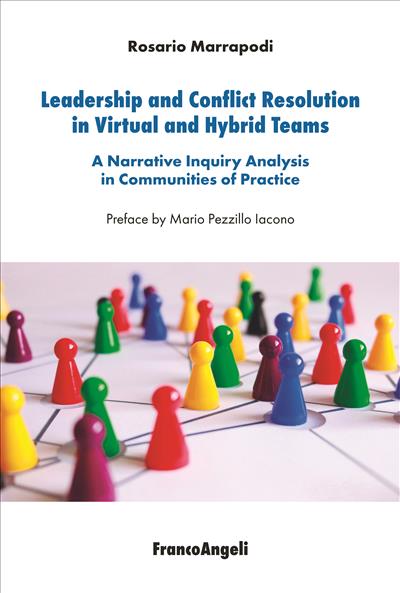
Leadership and Conflict Resolution in Virtual and Hybrid Teams
A Narrative Inquiry Analysis in Communities of Practice
Based on a qualitative research design, this book explores how leadership is enacted and perceived in conflict management processes by a network of human resources professionals within an Italian Community of Practice. The volume reveals how leaders contribute to conflict resolution not only through formal authority, but also through building trust, exercising empathy, and intentional communication.
Pagine: 214
ISBN: 9788835172987
Edizione: 1a edizione 2025
Codice editore: 1820.358
Disponibilità: Discreta
Pagine: 214
ISBN: 9788835181682
Edizione:1a edizione 2025
Codice editore: 1820.358
Possibilità di stampa: No
Possibilità di copia: No
Possibilità di annotazione: No
Formato: PDF con DRM Readium LCP
Pagine: 214
ISBN: 9788835182375
Edizione:1a edizione 2025
Codice editore: 1820.358
Possibilità di stampa: No
Possibilità di copia: No
Possibilità di annotazione: Sì
Formato: ePub con DRM Readium LCP




